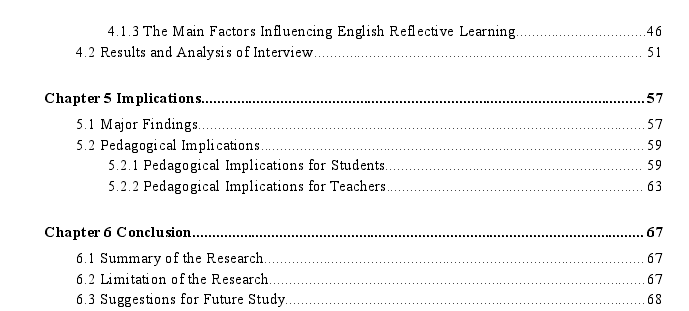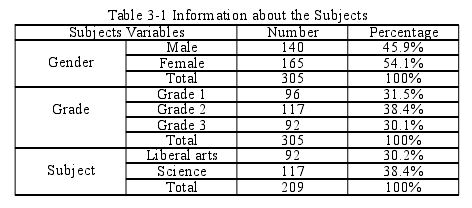英语论文哪里有?本研究旨在调查高中生英语反思性学习的总体情况,探讨男女生、文理生、不同年级学生在英语反思性学习方面的差异,最后找出影响高中生英语反思性学习的主要因素。本研究主要以问卷调查和访谈为研究对象,以湖南省启东县第一高中305名学生为研究对象。本问卷共分为三个维度:学习者的学习意识、学习内容和学习策略。
Chapter 1 Introduction
1.1 Background of the Research
With the rise and development of reflective teacher education movement in America,Britain, Canada, etc., “reflection” has gradually come into our country researchers’ perspective.However, most of the researches on reflection focus on teachers, such as “reflective teaching”,“reflective teacher”, and “reflective practice” and so on. As Jin Yule (2006) said, most ofreflective teaching models are about teachers, not students, and they can’t realize teaching is abilateral activity that teachers and students must jointly participate in. In his view, teaching andlearning include two subjects, that is, teacher and student. Therefore, both teachers and studentsare supposed to be focused, regardless of reflective teaching or reflective learning. It is importantand necessary to do research on students’ reflective learning. The background of this researchconsists of three parts: the requirement of lifelong learning, the needs of English CurriculumStandards, as well as the needs of teaching practice.
It is necessary to cultivate students' capacity of reflecting on their own learning process inorder to make them adapt to the implementation of innovative education in the 21st century.Since the first world lifelong learning was held in Rome in 1994, lifelong learning has becomean important idea. In the area of knowledge economy, the ultimate goal of education is notsimply to teach students to learn, but to teach students to learn how to learn. Reflective learningcan help learners know their own strengths and weaknesses and make corresponding adjustment,which are an important part of learning. Therefore, senior high students who are in alifelong-learning society should not only value the scientific knowledge study, but also adjusttheir own English learning, improve their all-round qualities, and gradually learn how to learn bymeans of reflection. Under this condition, students can reflect on their own English studies andmaster English learning methods, which are beneficial to their mastery of English in a moreefficient way, and which will help them become more competitive than others, regardless of theNational College Entrance Examination or future study.

Chapter 3 Research Design
3.1 Research Questions
In order to find out the overall situation of English reflective learning of senior high schoolstudents, differences of students’ English reflective learning in different background of grades,genders and subjects and main factors affecting English reflective learning. Therefore, thisresearch aims to answer the following three questions:
(1) What is the overall situation of senior high school students’ English reflective learning?
(2) Are there any significant differences in English reflective learning between male andfemale, between students in liberal arts and science, and among students in different grades?
(3) What are the main factors influencing English reflective learning of senior high schoolstudents?

Chapter 5 Implications
5.1 Major Findings
This research focuses on the investigation of English reflective learning of senior highschool students by means of questionnaire and interview to find out the overall situation ofstudents’ English reflective learning, the differences in English reflective learning between maleand female, between students in liberal arts and science, and among students in different grades,as well as the main affecting factors of students’ English reflective learning. In accordance withthe statistics from the questionnaire and interview, the major findings of this research aresummarized as follows.
First of all, English reflective learning of senior high school students is in middle level onthe whole. Judging from this survey results, it can be seen that among three dimensions, themean value of awareness of ERL is the highest, followed by contents of ERL and strategies ofERL. In terms of awareness of English reflective learning, a large number of students have theawareness of English reflective learning. However, although students understand the role Englishreflective learning play in their learning, a few of them have a good habit of reflecting on theirown English learning. Then, in terms of contents of English reflective learning, most studentshave no clear idea about it. They don’t know what they should reflect on and how they shouldreflect on, especially in the aspect of learning process and learning outcome. In terms ofstrategies of English reflective learning, students mainly use the strategies of previewing strategy,summarizing strategy and communicating strategy among the five reflective strategies.
5.2 Pedagogical Implications
On the basis of the major findings of this research, it can be seen clearly that there are stillseveral possibilities for improving students’ English reflective learning. Therefore, the authoroffers some pedagogical implication to foster students’ English reflective learning.
5.2.1 Pedagogical Implications for Students
In the view of students of constructivism learning theory, students play a role of mainsubject in learning. Therefore, students need to take active measures to develop and improvetheir level of English reflective learning. Some implications for students are as follows.
5.2.1.1 Increasing Their Knowledge of English Reflective Learning
The degree of knowledge of reflection can directly affect students’ English reflectivelearning. If students who have higher level of knowledge of English reflective learning, they willconduct self-reflective learning well. So students can actively attend some lectures about Englishreflective learning to strengthen the awareness of self-reflection and knowledge of Englishreflective learning. Through the lectures, students can have a clear understanding of Englishreflective learning. Of course, it is also essential for students to ask teachers for help to knowabout the knowledge of English reflective learning, including contents and strategies of Englishreflective learning. In the aspect of contents of English reflective learning, students should putemphasis on reflecting on learning goal, learning process and learning outcome. Therefore,students’ English reflective learning actions are roughly divided into three steps consisting of theones before learning, while reading and after reading.
Chapter 6 Conclusion
6.1 Summary of the Research
This research aims to investigate the overall situation of English reflective learning ofsenior high school students, explore differences in English reflective learning between male andfemale, between students in liberal arts and science, and among students in different grades, andfinally find out the main factors affecting English reflective learning of senior high schoolstudents. This research mainly takes the questionnaire of students and interview as researchintruments and 305 students from No.1 senior high school in Qidong County, Hunan Province asthe research subjects. There are three dimensions in this questionnaire: awareness of ERL,contents of ERL and strategies of ERL.
According to the results of the study, it can be clearly seen that the overall situation ofEnglish reflective learning of senior high school students is in middle level. There’re significantdifferences in senior high school students’English reflective learning in different grades on thewhole and in the three dimensions of awareness of ERL, contents of ERL and strategies of ERL.There’re significant differences in English reflective learning between male and female andamong students in different grades on the whole and in the three dimensions as well. However,there exists no significant difference in English reflective learning between students in liberalarts and science on the whole and in the three dimensions as well.
After understanding the overall situation of English reflective learning of senior high schoolstudents, the author summarizes the main factors influencing English reflective learning of seniorhigh school students through analysis of the results of questionnaire and interview. Finally, somepedagogical sugestions are proposed to how to improve students’ English reflective learning onthe basis of different affecting factors, which are careful stated in chapter five.
reference(omitted)

